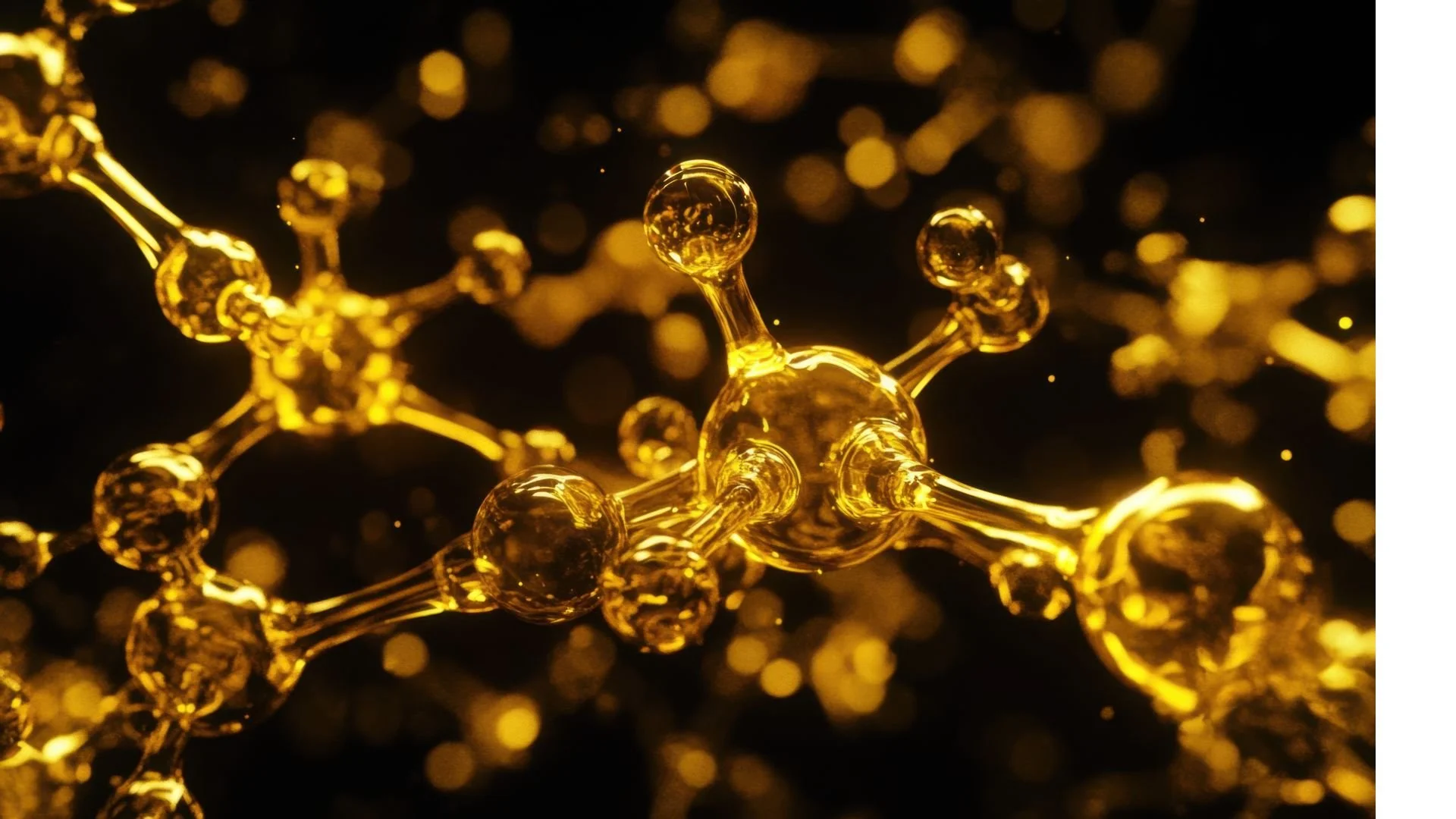What Are Peptides?
Peptides are short chains of amino acids, which are the building blocks of proteins. You can think of a peptide as a tiny protein – usually consisting of 50 or fewer amino acids linked together. In the body, peptides often act like signals or messengers. Some peptides are hormones that circulate and instruct organs on what to do. For example, insulin is a peptide hormone that helps control blood sugar. (In fact, insulin was the first therapeutic peptide, used to treat diabetes starting in the 1920s.) Many other natural peptides help regulate sleep, metabolism, healing, and other vital functions.
What is Peptide Therapy?
Peptide therapy means using specific peptides as treatments to achieve certain health benefits. These peptides are usually synthetic (man-made) versions of peptides that our bodies produce naturally. The idea is that by introducing extra peptides, we can boost particular signals in the body to promote healing, rejuvenation, or other desired effects.
Peptide therapy can come in different forms, but injections are the most common, because peptides are best absorbed when injected under the skin or into the bloodstream. Some peptide therapies are also available as creams, nasal sprays, or oral supplements, but many peptides would be broken down in the stomach if swallowed. When administered properly (often by a healthcare provider or under medical guidance), these peptides travel through the body and bind to specific receptors, triggering certain biological responses. Essentially, they “tell” your cells or hormones to act in a certain way. Because peptides are highly specific – often targeting only particular cell types or functions – peptide therapies are designed to have focused effects with potentially fewer side effects than some medications.
Potential Benefits and Uses of Peptide Therapy
Peptide therapy has gained attention for a variety of wellness and medical goals. Different peptides do different things, so specific peptide treatments are tailored to specific outcomes. Here are some common areas where peptide therapy is being used or studied:
Weight Loss and Metabolism: Certain peptide medications have been developed to assist with weight loss by mimicking hormones that regulate appetite and blood sugar. For example, GLP-1 agonist peptides (like semaglutide) signal the body to increase insulin, slow down digestion, and reduce appetite, leading to significant weight loss in many individuals. In fact, the FDA has approved injectable peptide drugs such as semaglutide (brand name Wegovy) specifically for chronic weight management in adults with obesity. Peptide therapies used in weight-loss clinics – like CJC-1295/Ipamorelin – also aim to boost metabolism by increasing growth hormone levels, which can help burn fat.
Muscle Gain and Fitness: Some peptides are used to support muscle growth and athletic performance. A peptide like Ipamorelin or Sermorelin stimulates the release of human growth hormone (HGH) from the pituitary gland. In adults with true HGH deficiency, this can improve muscle mass and energy. Athletes or gym-goers sometimes use these peptides (illegitimately, without a diagnosed deficiency) to attempt to enhance muscle recovery, increase strength, and build lean body mass. It’s important to note that while peptides like these may increase growth hormone, the use of HGH or its secretagogues for anti-aging or sports is not FDA-approved and comes with health risks. Experts warn that outside of true medical need, there isn’t solid evidence that HGH-boosting peptides will “reverse aging,” and misuse can lead to joint pain, swelling, or blood sugar issues.
Anti-Aging and Skin Health: Some clinics promote peptide therapy as a way to slow aging. For example, thymosin peptides or epithalons have been touted to support immune function and cellular health. Another peptide, BPC-157, is being researched for tissue repair; anecdotal reports claim it helps heal tendons, ligaments, and even improve skin health. Additionally, because collagen in the skin is made of peptides, there’s interest in peptides for improving skin elasticity and reducing wrinkles. Certain over-the-counter beauty products contain “collagen peptides” intended to support skin rejuvenation, though the evidence for topical peptide absorption is still limited.
Injury Recovery and Healing: Some peptides appear to aid the body’s repair mechanisms. BPC-157 (mentioned above) comes from a protein in stomach acid and in animal studies has shown potential to speed up healing of muscles, bones, and the gut lining. TB-500 (Thymosin Beta-4) is another peptide under investigation for wound healing and reducing inflammation. Athletes and biohackers have used these experimentally to recover from injuries more quickly. While early research is intriguing, we need more human clinical trials to know how effective and safe these peptides truly are for healing in the long run.
Cognitive Function (“Brain Fog”): Some proponents of peptide therapy claim certain peptides can improve mental clarity or “brain fog.” One example is Dihexa, an experimental neuropeptide that in lab studies appeared to promote brain cell connections. Another is Selank, a synthetic peptide derived from a natural immune molecule, which is used in Russia as an anti-anxiety nasal spray and is claimed to also improve focus. These uses are not mainstream and not FDA-approved, so consider them experimental.
In summary, peptide therapies are being explored for a wide range of uses – from weight loss and muscle gain to anti-aging, sexual wellness, and immune function. It’s an exciting frontier, because in theory peptides can be designed to target very specific pathways in the body. Many modern drugs are actually peptides or proteins (for instance, insulin for diabetes, or monoclonal antibodies for autoimmune diseases), so the concept of using peptides as treatment is well established. What’s relatively new is the expansion of peptide use into general wellness and preventive medicine.
How Does Peptide Therapy Work?
Each peptide works a bit differently depending on its target. Generally, when you undergo peptide therapy, you receive a specific peptide that binds to certain receptors in your body to stimulate a desired effect. For example, if someone is receiving a peptide for weight loss like semaglutide, that peptide will attach to GLP-1 receptors and trigger insulin release, slow stomach emptying, and reduce hunger signals. If someone takes CJC-1295/Ipamorelin, those peptides bind to the pituitary gland and cause it to secrete growth hormone, which then has downstream effects like increasing muscle protein synthesis and breaking down fat. The key point is that peptides are highly selective messengers – they fit into specific receptor “locks” like a key and turn on (or sometimes turn off) particular processes. This selectivity can make them powerful; for instance, a peptide can boost a hormone only when it’s needed and only in certain tissues, potentially reducing side effects elsewhere.
Peptide therapies are typically administered in cycles or according to a regimen. A common approach is daily subcutaneous (under-the-skin) injections for a certain number of weeks, then a break. Patients might start noticing changes after a few weeks: for instance, improved sleep and recovery in the first month, followed by changes in body composition (muscle gain or fat loss) in subsequent weeks. The timeline and results vary widely depending on the individual and the peptide used.
It’s worth noting that because peptides are natural to the body, they are generally well-tolerated when used appropriately. They tend to be broken down into amino acids over time, so they don’t usually accumulate to toxic levels. However, side effects can occur – for example, users of growth-hormone-releasing peptides might experience fluid retention, joint pain, or tingling/numbness. Some peptides could affect blood sugar or blood pressure. This is why peptide therapy should be done under medical supervision, with a healthcare provider monitoring your progress and any potential side effects.
Important Considerations and Safety
Peptide therapy occupies a bit of a gray zone between traditional medicine and progressive wellness treatment. On one hand, certain peptide drugs (like those for diabetes or the new weight loss medications) are rigorously tested and FDA-approved. On the other hand, many peptides marketed by anti-aging clinics – such as BPC-157, thymosin, or blends for “wellness” – are not yet FDA-approved for those purposes. This means their use is off-label or as experimental compounds. Quality control can also be an issue; peptides sold by compounding pharmacies or online may not always contain the exact ingredients or doses advertised.
If you’re considering peptide therapy, keep these tips in mind:
Consult a knowledgeable healthcare provider. It’s best to work with a medical professional who has experience in hormone or peptide therapies. They can order legit peptides from trusted pharmacies and ensure you’re a good candidate (for example, checking that you don’t have medical conditions that a peptide could worsen).
Understand the legality and regulation. In the U.S., it’s illegal to use some peptides without a prescription. Certain peptides are classified for “research use only.” Make sure anything you use is legal and obtained through proper channels – avoid black-market products.
Monitor your progress. Keep track of any changes you feel and report them. Some benefits attributed to peptides (better mood, more stamina) are subjective, so it helps to have clear goals and possibly even lab tests to measure things like hormone levels or body composition changes over time.
Be patient and skeptical. While peptide therapy is promising, it’s not magic. Not every claim made by spas or clinics is backed by solid science. Results vary, and some benefits (like significant muscle gain or anti-aging effects) may be subtle or take longer to achieve than advertisements suggest. Maintain healthy lifestyle habits alongside any therapy – peptides aren’t a substitute for good nutrition, exercise, and sleep.
In summary, peptide therapy represents a cutting-edge approach to targeting specific health goals by leveraging the body’s own signaling molecules. It has shown real benefits in areas like weight management and is being explored for many other uses. However, it’s important to approach it with informed caution. Always rely on up-to-date medical guidance and be wary of overhyped promises. When used responsibly and in the right context, peptide therapy may offer a safe and effective way to enhance your health – and ongoing research (much of it supported by NIH and other institutions) is rapidly shedding light on how these therapies can be optimized for broader use.
Please note: This information is provided for educational purposes only and is not a substitute for professional medical advice. Always consult your primary care physician or a qualified healthcare provider regarding any questions or concerns about your health. Content created with the assistance of ChatGPT to provide clear, accessible medical condition descriptions.




